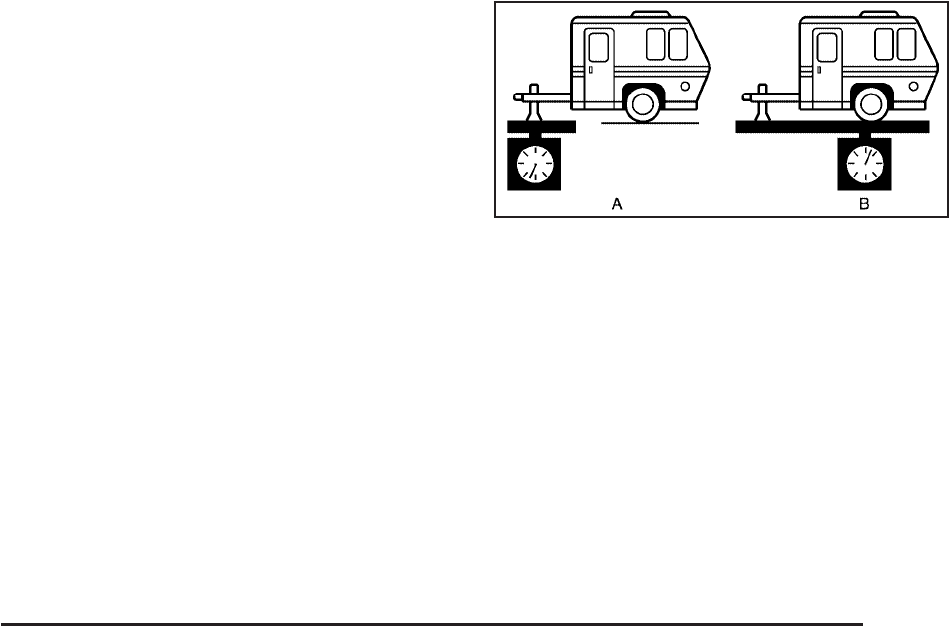
vehicle, and the amount of tongue weight the
vehicle can carry. See “Weight of the Trailer
Tongue” later in this section for more information.
Maximum trailer weight is calculated assuming
only the driver is in the tow vehicle and it has all
the required trailering equipment. The weight
of additional optional equipment, passengers and
cargo must be subtracted from the maximum
trailer weight.
You can ask your retailer for trailering information
or advice.
Weight of the Trailer Tongue
The tongue load (A) of any trailer is an important
weight to measure because it affects the total
or gross weight of your vehicle. The Gross Vehicle
Weight (GVW) includes the curb weight of the
vehicle, any cargo you may carry in it, and
the people who will be riding in the vehicle. And if
you tow a trailer, you must add the tongue load
to the GVW because your vehicle will be carrying
that weight, too. See Loading Your Vehicle on
page 279 for more information about your vehicle’s
maximum load capacity.
If you’re using a weight-carrying hitch, the trailer
tongue (A) should weigh 10 percent of the
total loaded trailer weight (B). If you’re using a
weight-distributing hitch, the trailer tongue (A)
should weigh 12 percent of the total loaded trailer
weight (B).
After you’ve loaded your trailer, weigh the trailer
and then the tongue, separately, to see if the
weights are proper. If they aren’t, you may be able
to get them right simply by moving some items
around in the trailer.
289


















